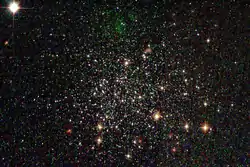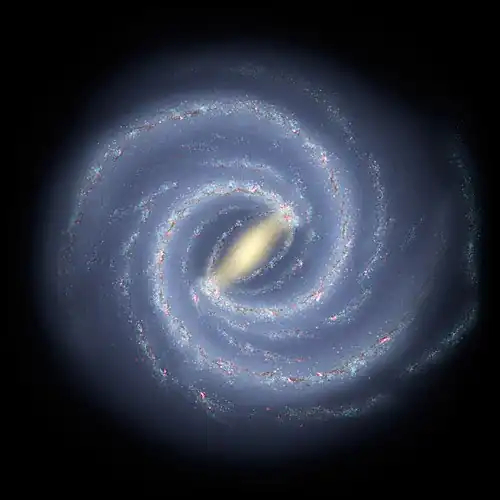| Palomar 4 | |
|---|---|
 The globular cluster Palomar 4, taken by the Hubble Space Telescope | |
| Observation data (J2000 epoch) | |
| Constellation | Ursa Major |
| Right ascension | 11h 29m 16.8s[1] |
| Declination | +28° 58′ 25″[1] |
| Distance | 356 kly (109 kpc) |
| Physical characteristics | |
| Other designations | UGCA 237, GCl 17[1] |
Palomar 4 is a globular cluster of the Milky Way galaxy belonging to the Palomar Globular Clusters group. It was discovered in 1949 by Edwin Hubble and again in 1955 by A. G. Wilson. Based on measurements of the stars from the Gaia spacecraft, it is at least 65,000 light-years (20,000 parsecs) from the Sun.
This star cluster is further away than the SagDEG satellite galaxy.
Initially it was thought to be a dwarf galaxy, and it was given the name Ursa Major Dwarf. However, it was later discovered to be a globular cluster.
See also
References
- 1 2 3 "SIMBAD Astronomical Database". Results for Palomar 4. Retrieved 2006-11-17.
External links
 Media related to Palomar 4 at Wikimedia Commons
Media related to Palomar 4 at Wikimedia Commons- Palomar 4 on WikiSky: DSS2, SDSS, GALEX, IRAS, Hydrogen α, X-Ray, Astrophoto, Sky Map, Articles and images
This article is issued from Wikipedia. The text is licensed under Creative Commons - Attribution - Sharealike. Additional terms may apply for the media files.
